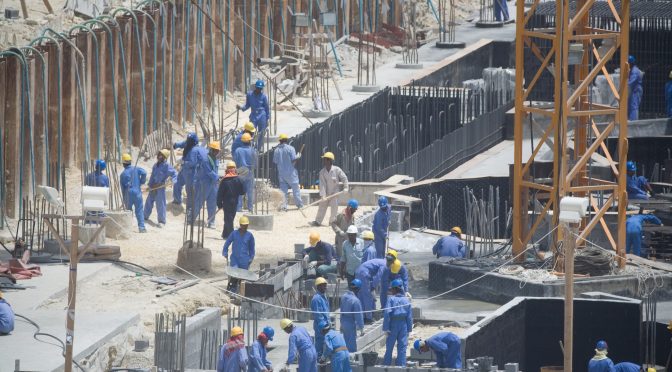A weekly round up of articles about employment, the labor market, skills training and workforce development. This week’s round up is drawn from The Daily Star. Here is the news for the week ending 8th December 2016.
This week in the Bangladesh English Press…
…The International Labour Organization reflects on the region’s progress towards decent work. While studies shows migrant workers suffering in the Gulf, and child labour still common in Dhaka. At the elite end of the employment spectrum Bangladeshi financial professionals and the country’s peacekeepers are in demand. Good news across the rural economy from bee hives to orange groves.
Decent jobs for the region
Labour, employment, workers’ health and safety and migration are discussed at these meetings held every four years.
Gus Ryder, the director general of the ILO, said that so much more must be achieved.
Workers do not have adequate legal protection. Migrant workers are exploited. Many young people cannot find work. And child labour is prevalent.
Women are more less likely to be in decent work. And poor quality education and low skills will constrain economic progress in the region.
Migrant workers at risk in Gulf
The media has repeatedly highlighted the abuse of migrant workers in these two countries.
The UK-based Business & Human Rights Resource Centre sent questionnaires about working condition to 100 large construction companies. All the companies are working on mega-projects in UAE and Qatar.
Only 22 firms responded.
Remittances Fall
Monthly remittances totals have continued to fall in November.
More Bangladeshis are working abroad. But they are sending less home.
Earlier analysis blamed low oil prices for slowing economies in the middle east countries where Bangladeshis work. So less overtime, smaller bonuses and higher living costs mean less saved.
Now experts suggest more remittances are flowing through illegal channels. These don’t show up on official figures.
The costs of implementing new regulations in the financial sector has widened the gap between official and black-market exchange rates.
New anti-money laundering measures for banks and financial institutional are designed to restrict the funding of terrorism and other crimes.
Slum children in work
Children in slums must find work to supplement family income.
Research by the UK’s Overseas Development Institute found 45 per cent of slum children are in work by the age of just 14.
Skilled Bangladeshis highly competitive …
…in finance
Young banking professionals from Bangladesh are out-performing their counterparts from Malaysia, Thailand Indonesia.
Standard Chartered Bank is admitting more Bangladeshis into its international graduate programme.
This is a one-year programme for the future leaders of the UK-based bank.
and peacekeeping
We often reviews news about unskilled Bangladehi migrant workers.
So we often forget that Bangladesh’s military personnel are highly skilled professionals. And they are in high demand for United Nation’s peacekeeping missions throughout the world.
Bangladesh will deploy 850 soldiers to the Wau area.
Good news for the rural economy
There has been a wide of stories about agricultural enterprise this week. From mainstream rice to the less well-known trade in mud eels.
Rice prices healthy
Farmers are getting good prices for their rice crop this year.
They are selling Aman rice at prices 30 per cent higher than last year.
Aman is a wet season crop. Prices have risen due to increased demand and government tarifs on imported rice.
New cotton cultivated in Gaibandha
Farmers are growing high-yield varities of cotton in Sundarganj upazilla.
It’s a high margin activity because current prices are high and production costs are low.
Yields are up to 15 maunds per bigha (around one and half tonnes per per acre).
Just 100 bighas of land are currently growing cotton.
Rural income for women from honey
Slovenian experts will work with Brac to promote beekeeping and honey cultivation.
This could be a source of income for village woment.
Slovenia is a small European country with a population of two million.
But the country is a world leader in beekeeping. With Slovenian help beekeeping in Bangladesh might take off.
Money in Mandarins and mud eels
A farmer from Naniarchar in Rangamati says he’s earned 600,000 Taka this year selling mandarins.
In 2007 he planted 500 mandarin trees on two acres of land.
Mud eels caught in Agailjhara’s wetlands are exported to China.
About 500 people are involved in the mud eel fishing. Typically a fisherman makes a daily catch of just three kilogrammes and sells these in a local wholesale market for 250 Taka per kilo.
About ten tonnes of eels are sent to exporters in Dhaka every week.
And that’s all the news this week from The Daily Star.
